Shompen Tribe Casts Historic Votes in Andaman and Nicobar Elections
The recent Andaman and Nicobar Islands election witnessed a remarkable event as the Shompen tribe exercised their voting rights for the first time in history. This significant development marks a pivotal moment in the journey towards inclusivity and democratic participation in the remote archipelago. The Shompen tribe, one of the indigenous communities residing in the Andaman and Nicobar Islands, has long been secluded from mainstream society due to geographical isolation and cultural differences. However, their participation in the electoral process underscores a positive stride towards integration and representation.
Historic Turnout by the Shompen Tribe In a historic turnout, members of the Shompen tribe cast their votes at designated polling stations, symbolizing their desire to engage in the democratic process and have a say in governance. This momentous occasion not only signifies a step towards political empowerment but also highlights the efforts of local authorities and community leaders in facilitating this milestone.
Challenges and Opportunities The journey towards enabling the Shompen tribe to exercise their voting rights has not been without challenges. Overcoming linguistic barriers, logistical hurdles, and ensuring cultural sensitivity were among the key challenges faced. However, the successful participation of the Shompen tribe underscores the potential for fostering greater inclusivity and representation in electoral processes across marginalized communities.
Upholding Democratic Values The inclusion of the Shompen tribe in the electoral process aligns with the core principles of democracy, emphasizing equal participation and representation for all citizens. It reflects a broader commitment to upholding democratic values and ensuring that every voice is heard, irrespective of socio-cultural background or geographical location.
Building Bridges for the Future Moving forward, the historic participation of the Shompen tribe serves as a catalyst for fostering greater understanding, cooperation, and integration between indigenous communities and the broader society. It paves the way for constructive dialogue, collaborative initiatives, and inclusive policies aimed at addressing the needs and aspirations of all segments of society.
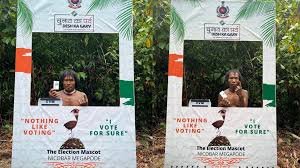
Why this News is Important
Historical Milestone for the Shompen Tribe The participation of the Shompen tribe in the Andaman and Nicobar Islands election marks a historic milestone, signifying their integration into the democratic process after years of seclusion and marginalization.
Promotion of Inclusivity and Representation By exercising their voting rights, the Shompen tribe has demonstrated their desire for greater inclusivity and representation in governance, setting a precedent for other marginalized communities across the country.
Historical Context
The Andaman and Nicobar Islands have a rich history of indigenous tribes, including the Shompen tribe, who have inhabited the region for centuries. However, due to geographical isolation and limited interaction with the outside world, these tribes have often remained detached from mainstream society. Historically, efforts have been made to preserve their unique cultural identity and way of life, while also addressing challenges such as access to education, healthcare, and socio-economic opportunities.
In recent years, there has been a concerted push towards integrating indigenous communities into the broader socio-economic and political fabric of the nation. This includes initiatives to provide them with access to essential services, protect their land rights, and ensure their participation in democratic processes such as elections. The decision to enable the Shompen tribe to vote in the Andaman and Nicobar Islands election is a significant step towards realizing these objectives and promoting greater inclusivity and representation.
Key Takeaways from “Shompen Tribe Casts Historic Votes in Andaman and Nicobar Elections”
| Serial Number | Key Takeaway |
|---|---|
| 1 | The Shompen tribe, an indigenous community in the Andaman and Nicobar Islands, exercised their voting rights for the first time in history. |
| 2 | Their participation signifies a significant milestone towards inclusivity and representation in the democratic process. |
| 3 | Overcoming logistical and cultural barriers, the successful turnout of the Shompen tribe highlights efforts towards promoting greater integration and engagement. |
| 4 | This event underscores the importance of upholding democratic values and ensuring equal participation for all segments of society. |
| 5 | The historic participation of the Shompen tribe paves the way for fostering greater understanding, cooperation, and collaboration between indigenous communities and the broader society. |
Important FAQs for Students from this News
1. How significant is the participation of the Shompen tribe in the Andaman and Nicobar Islands election?
- The participation of the Shompen tribe is highly significant as it marks their first-ever engagement in the democratic process, highlighting a shift towards inclusivity and representation.
2. What challenges did the authorities face in enabling the Shompen tribe to vote?
- Authorities encountered challenges such as linguistic barriers, logistical hurdles, and the need for cultural sensitivity to facilitate the participation of the Shompen tribe in the election.
3. Why is the inclusion of indigenous communities in the electoral process important?
- The inclusion of indigenous communities ensures that their voices are heard in governance, promotes greater representation, and upholds democratic principles of equality and participation.
4. How does the historic turnout of the Shompen tribe impact future initiatives for marginalized communities?
- The turnout sets a precedent for fostering greater understanding, cooperation, and integration between indigenous communities and society, paving the way for inclusive policies and initiatives.
5. What broader implications does this event have for democracy in India?
- This event underscores the commitment to upholding democratic values, ensuring equal participation for all citizens, and promoting inclusivity and representation across diverse socio-cultural backgrounds.
Some Important Current Affairs Links











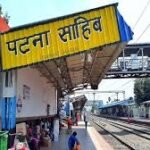

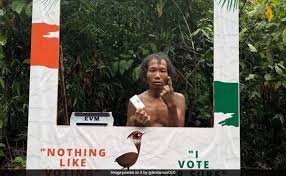
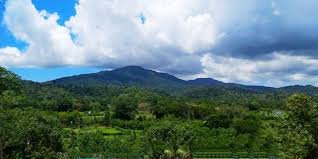


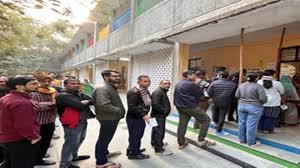
 Exciting News!
Exciting News!  Join Our Telegram Channel Now!
Join Our Telegram Channel Now!
 Join our Telegram channel for a thrilling adventure into the world of daily current affairs.
Join our Telegram channel for a thrilling adventure into the world of daily current affairs. 
 Don’t miss out on the latest updates and insights! Click to join now and be part of the knowledge revolution!
Don’t miss out on the latest updates and insights! Click to join now and be part of the knowledge revolution! 
